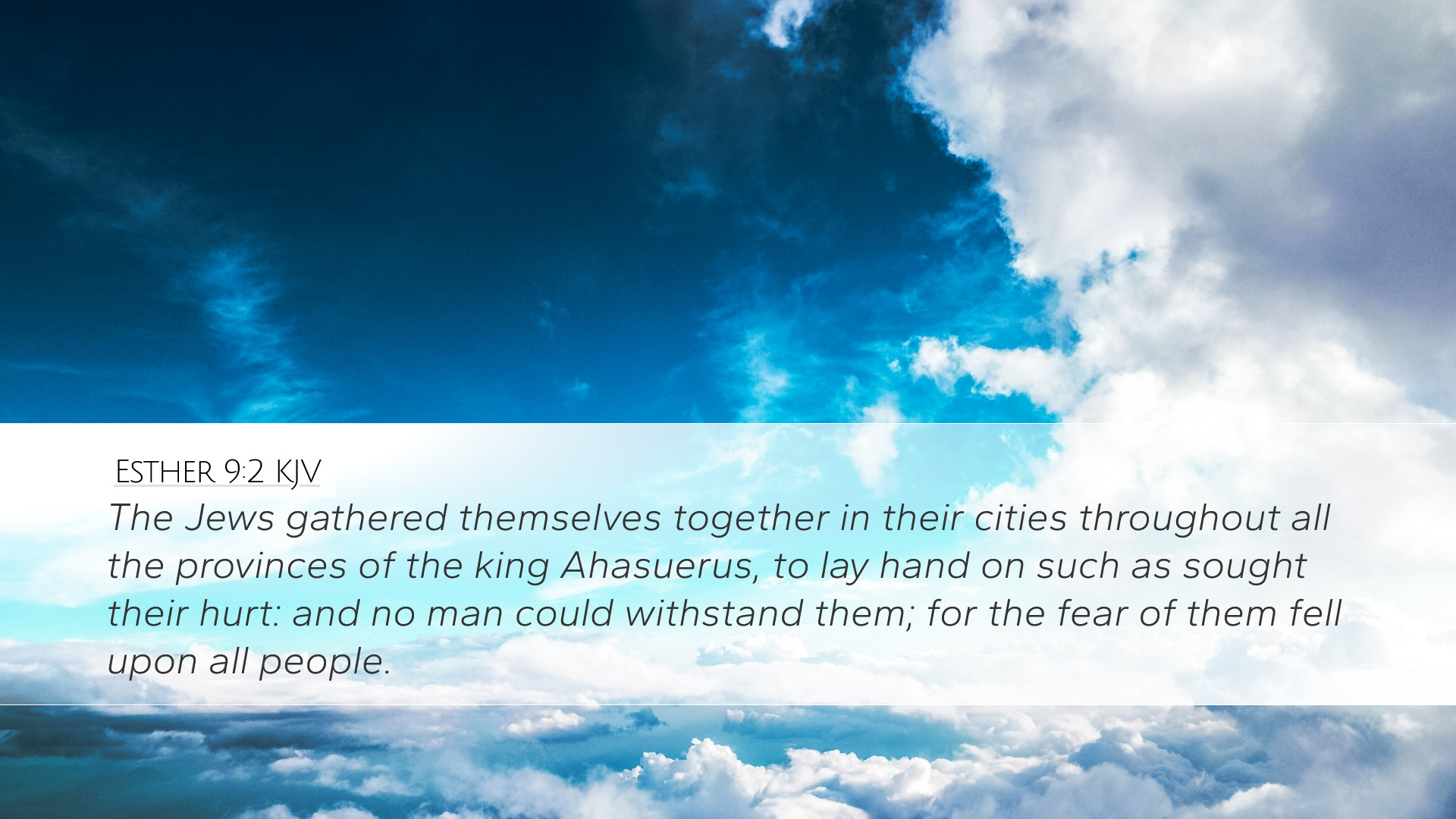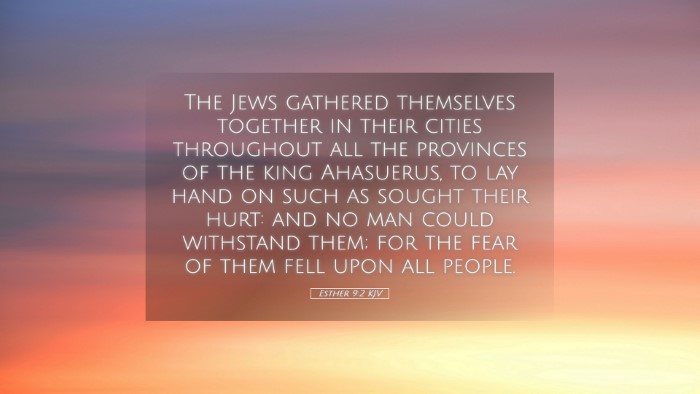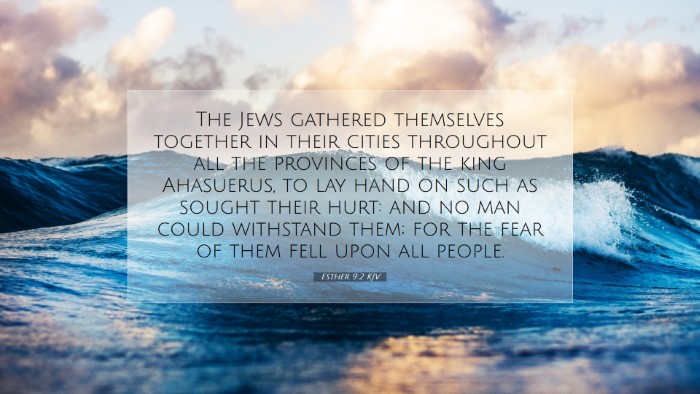Commentary on Esther 9:2
Esther 9:2 states, “The Jews gathered together in their cities throughout all the provinces of King Ahasuerus, to lay hand on such as sought their hurt: and no man could withstand them; for the fear of them fell upon all people.” This pivotal verse encapsulates the triumph of the Jewish people following the decree that previously condemned them. It indicates a significant moment of reversal where the oppressed become the victors. Below is a synthesis of insights from various public domain commentaries.
Contextual Background
The events of Esther take place during the reign of Ahasuerus (Xerxes), a period characterized by the plight and persecution of the Jewish people in Persia. The narrative builds up to Esther's courageous intercession, leading to the Jews' deliverance. This verse comes at the climax where they assertively defend themselves following the king's edict allowing them to oppose their enemies.
Insights from Matthew Henry
According to Matthew Henry, this verse highlights the unity and courage of the Jewish people. They came together in their cities, indicating a robust communal response. Henry emphasizes that the Jews did not operate in isolation but as a united front across various provinces. The 'fear' that fell upon the people serves as a divine providence, showcasing God's protective hand over His people. It implies that the Jewish people's strength lay not just in numbers but in the fear that their enemies had of them, which was a direct result of God’s intervention.
Reflections from Albert Barnes
Albert Barnes interprets this verse as detailing the effectiveness of the Jews’ gathering and self-defense. He notes that this gathering was not merely for a defensive stand but was an assertive action against those who sought to harm them. Barnes emphasizes the influence of fear as a powerful motivator in human interactions and looks at how the reported fear of the Jewish people among the other nations marked a significant shift in the sociopolitical landscape. This fear, as noted, can be seen as both a natural reaction and a spiritual phenomenon, affirming that God had placed apprehension in the hearts of their enemies.
Analysis by Adam Clarke
Adam Clarke draws attention to the significance of the Jews' collective action. He asserts that the strategic positioning of the Jews in their cities was crucial in preventing any possible retaliation from their enemies. Clarke points out that no man could withstand them, indicating not only the Jews' martial strength but also the prevailing social order which was now defined by the respect and caution of those who previously stood against them. He also notes the essential role of divine favor in this turnaround, suggesting that the favorable outcome was both a result of their unity and God's providential care.
Theological Implications
This verse bears profound theological implications, particularly in its depiction of divine deliverance. The narrative exemplifies the transformation from despair to hope, a theme resonant throughout Scripture. The Jews’ empowered position reinforces the doctrine of God’s sovereignty in the face of opposition. As theologians reflect on this text, it serves as a reminder of how God can reverse circumstances and grant His people victory even in dire situations.
- Divine Sovereignty: The orchestrating hand of God ensures that His plans for His people prevail, irrespective of human antagonism.
- Fear of the Lord: The reverence or fear depicted here resonates with the biblical theme of the fear of the Lord being the beginning of wisdom, emphasizing that true power lies within God’s ability to influence the hearts of men.
- Community and Identity: The unity of the Jewish people underscores the importance of shared identity and mission, serving as an encouraging sign for modern congregations of the strength found in collective faith and action.
Practical Applications
This verse bears valuable lessons for contemporary readers, particularly pastors and church leaders:
- Encouraging Unity: Just as the Jews gathered together, there is a call for the church to foster unity among believers, recognizing that together they can stand against various societal pressures.
- Responding to Oppression: The active defense of the Jewish people serves as a model for believers today, emphasizing the call to action in the face of injustice.
- Trust in Divine Support: The fear that fell upon their enemies illustrates the importance of trusting in God’s providential support during struggles, inspiring confidence in the face of adversity.
Conclusion
Esther 9:2 stands as a testament to the power of communal action backed by divine authority. The insights from prominent commentaries illustrate the multifaceted nature of this verse, making it relevant to the lives of believers and the mission of the Church today. It calls for reflection on the significance of unity, the fear of God, and the strength found in collective identity as the people of God face the challenges of their times.


